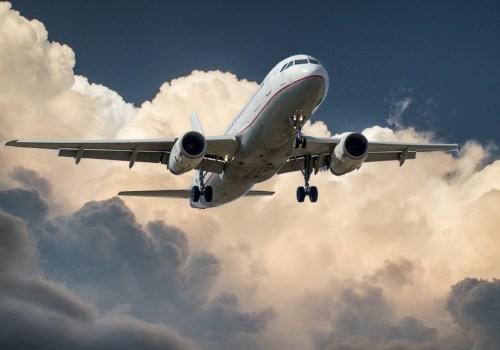When people think about moving, the most common images involve trucks, vans, or shipping containers. Yet, as global mobility expands and timelines shrink, more families and businesses are considering moving by airplane. This option is especially appealing to those relocating overseas, moving valuable possessions, or facing strict deadlines. But with convenience comes a pressing question: is moving by airplane worth the cost? To answer this, one must weigh speed, security, convenience, and overall expense.
Speed and Efficiency
The most obvious advantage of moving by airplane is speed. Air freight significantly outpaces sea or ground transportation, ensuring belongings arrive in a fraction of the time. For individuals moving for a new job, families relocating under tight schedules, or businesses transferring critical equipment, this quick turnaround is invaluable. Unlike lengthy shipping schedules or cross-country drives, air transportation guarantees that time-sensitive moves are executed smoothly. While this efficiency is a key selling point, the high cost associated with such speed must also be considered.
Security and Safety of Belongings
Moving by air often offers greater security compared to other methods. Airports and airlines implement strict safety measures, from advanced screening to secure handling processes. This reduces risks of theft, damage, or loss—especially important for those moving delicate equipment, electronics, or high-value items. While trucks and shipping containers expose belongings to longer travel times and potential hazards, air travel minimizes those risks. However, this added protection contributes to the premium cost of air freight services.
The Cost Factor
The biggest deterrent to moving by airplane is its price. Air freight is significantly more expensive than ground or sea options, often costing two to five times more depending on distance, weight, and volume. Airlines charge based on dimensional weight, meaning both the size and weight of each item affect the cost. For small moves with only essential belongings, the expense may be manageable. But for larger households, the price can quickly exceed budgets, making it impractical compared to renting a moving truck or container. This is where careful cost analysis becomes crucial in determining whether the benefits outweigh the financial burden.
Convenience Versus Practicality
Airplane moves deliver undeniable convenience. No long road trips, no multiple-day drives, and no waiting weeks for overseas shipments. Instead, belongings arrive quickly, allowing families and businesses to settle in faster. For those relocating across continents, this level of convenience is hard to match. Yet practicality depends on each mover’s specific situation. If someone is relocating with minimal items or only needs to ship essentials before the rest arrives later by ground or sea, then moving by air is practical. For larger-scale moves, however, the costs often outweigh the benefits, making alternative options more appealing.
Environmental Considerations
One often-overlooked factor is the environmental impact of moving by airplane. Air freight has a significantly higher carbon footprint compared to sea or land transport. For eco-conscious movers, this may weigh heavily in their decision-making process. Balancing speed and environmental responsibility requires thoughtful planning—sometimes combining air freight for urgent essentials with sea freight for bulkier items provides a more balanced solution.
Situations Where It Makes Sense
There are specific scenarios where moving by airplane is worth every penny. High-profile business relocations, international assignments, and moves involving sensitive equipment often demand the speed and reliability that only air transport can provide. Similarly, individuals relocating temporarily or with minimal belongings may find air freight surprisingly practical. These circumstances highlight that while air moves are costly, they aren’t always unreasonable—they simply need to align with the mover’s priorities and resources.
Weighing the Decision
Ultimately, deciding whether moving by airplane is worth the cost requires balancing priorities. If speed, safety, and convenience are non-negotiable, then the expense may be justified. However, for those with larger loads or flexible timelines, ground and sea options remain more economical. This is where preparation and trusted guidance come into play. Much like when families seek to learn more about us to better understand how storage and moving services can simplify transitions, weighing all options carefully ensures the most efficient and cost-effective choice.
Conclusion: Value Is Contextual
Moving by airplane is not inherently too expensive or too practical—it depends on context. For some, the peace of mind, efficiency, and security justify the cost. For others, the expense overshadows the benefits, making traditional methods more appealing. The key lies in understanding one’s priorities: speed versus budget, convenience versus practicality, and environmental impact versus urgency. By carefully analyzing needs, costs, and benefits, movers can decide whether air freight is a luxury or a necessity. In the end, airplane moving services remain a valuable option, but one that requires thoughtful decision-making to ensure the journey is both smart and worthwhile.



